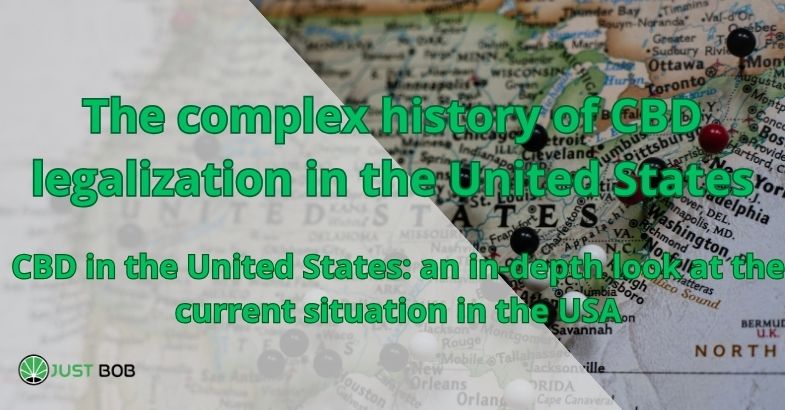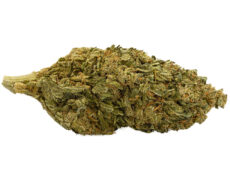Modified on: 02/04/2024
CBD IN THE UNITED STATES: AN IN-DEPTH LOOK AT THE CURRENT SITUATION IN THE USA
The legalization of CBD in the United States is an evolving topic with many facets. While the 2018 Farm Bill was an important step towards its legalization, regulations vary greatly from state to state.
The scientific community continues to study the potential therapeutic applications of CBD, but its complex legal situation poses a challenge.
-
 SMALL & BIG
SMALL & BIGBUBBLEGUM
Starting from: 1,25CHF/gIndoor | CBD – CBDA <22%
Grams3 5 10 20 50 100 -


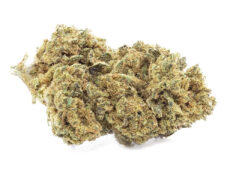
DO SI DOS
Starting from: 2,00CHF/gIndoor | CBD – CBDA < 19%
Grams3 5 10 20 50 100 -


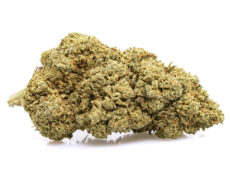
ROYAL GG#4
Starting from: 2,30CHF/gIndoor | CBD – CBDA < 40%
Grams3 5 10 20 50 100 -


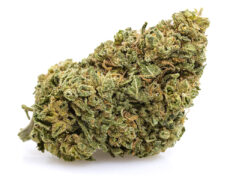
GORILLA GLUE
Starting from: 2,90CHF/gIndoor | CBD – CBDA < 20%
Grams3 5 10 20 50 100
In recent years, the CBD flower has gained popularity for its potential medical applications, but its legal status has been the subject of debate.
Cannabidiol, or better known as CBD, is one of the compounds extracted from the cannabis plant. Unlike tetraidrocannabinoil (THC), CBD doesn’t have psychoactive effects and is known for having potential health benefits.
In the United States, CBD legalisation has been under debate and undergone significant changes that have marked its path throughout the United States of America.
Read also: Remedies for a sore throat from smoking
History of CBD in USA: Farm Bill
The CBD legalisation in the United States of America has a complex history. Initially, CBD was considered a controlled substance because of its derivation from cannabis. However, Congress adopted the 2014 Farm Bill, which paved the way for research and the cultivation of industrial hemp, considering CBD extracted from this plant federally legal, if containing less than 0.3%.
In 2018 the United States Congress passed what’s known as the Farm Bill (Agricultural Improvement Act), a package of legislation updated every five years that covers a wide range of programs from subsidies for farmers to protection for consumers.
The Farm Bill was signed and approved from President Trump and provided important agricultural and nutritional policy extensions, although the most interesting changes involved the cannabis plant.
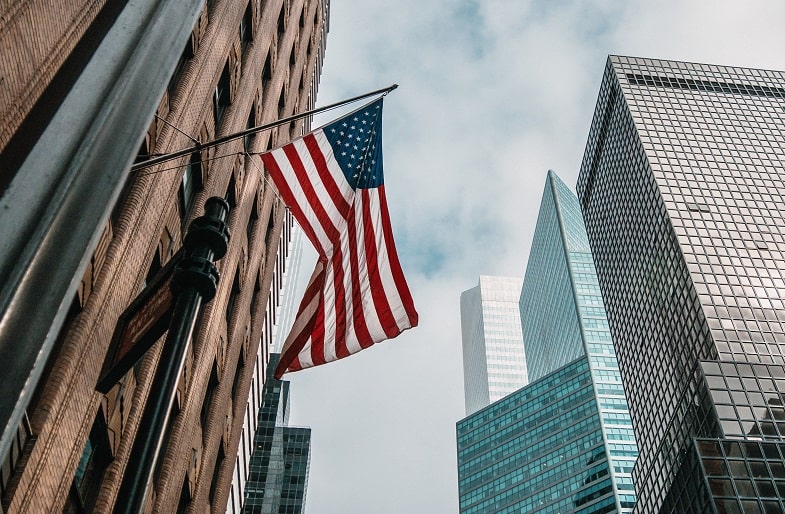

This document was a significant step towards Cannabidiol legalization. The pilot programs allowed to study hemp (often labelled as “industrial hemp”) that were approved by both the U.S. Department of Agriculture (USDA) and the State departments of agriculture. This allowed the small-scale expansion of hemp cultivation for limited purposes. The 2018 Farm Bill was more expansive. It allowed cultivation of hemp in general, not simply pilot programs to study the interest of the market for products derived from hemp. It explicitly allowed the transfer of hemp products through state lines for commercial or other purposes. It also did not restrict the sale, transport or possession of products derived from hemp, providing that such products were produced in accordance with the law.
However, the new agricultural law didn’t create a completely free system in which individuals or businesses could grow hemp whenever and wherever they wanted. There were numerous restrictions.
The main purpose of this draft law regarding hemp was to explicitly legalize it according to federal laws of the United States, while allowing the 50 states to decide for themselves whether the hemp would be legal or not within their borders.
Since then, almost all states have developed a regulatory framework for cultivation, processing and sale of hemp and hemp products.
So, the 2018 Farm Bill made CBD derived (like pre rolled CBD or others) from hemp legal at federal level. However, regulation has been delegated to states, and many have developed specific laws and regulations…
What’s the situation with marijuana and CBD today?
Today, support for marijuana legalization has become mainstream among Democratic politicians, and some Republicans also back the idea. State legislatures are grappling with if and how to legalize the drug, while several marijuana-related bills – including those aiming to decriminalize it on the federal level – have been introduced in Congress. The House passed a marijuana decriminalization bill on April 1, 2022, and months later, several senators – including Senate Majority Leader Chuck Schumer – introduced the Cannabis Administration and Opportunity Act, which would federally decriminalize weed, as reported by Marijuana Moment. The future of the bill in the Senate is uncertain.
The movement toward relaxing punishment on marijuana use took a new turn on Oct. 7, 2022, when President Joe Biden said he will issue pardons to everyone convicted of the federal crime of simple marijuana possession, while calling for governors to make similar moves for convictions under state laws. The proclamation will apply to about 6,500 Americans, but a senior White House official clarified to reporters that no one is currently behind bars for simple possession of marijuana.
Opponents say marijuana poses a public health and safety risk, and some are morally against legalization. Proponents, however, argue that it is not as dangerous as alcohol and point to evidence that it has therapeutic benefits, such as stress and pain relief.
A December 2022 study published by the American Medical Association found out that complete legalization reduces marijuana-related arrests even in states that had already decriminalized cannabis, meaning the drug is still illegal but a person would not be prosecuted for possession under a specified amount.
Read also: Therapeutic Cannabis: A scientific and social focus
The states: legalization and state-by-state restrictions
CBD regulations in the United States vary from state to state. Some states have embraced CBD weed and made them widely available in form of oil, capsules, creams and more. However, other states have stricter restrictions or prohibitions.
The Food and Drug Administration (FDA) is tasked with regulating CBD products, but has so far taken a cautious approach and declared that CBD cannot be added to foods and beverages. The FDA has expressed concerns about the safety and lack of sufficient data to determine effective doses and potential risks.
If you’re looking for CBD made from hemp plants, there are many states where it’s possible to buy and use the derived products. Learn where exactly CBD is legal in the United States, along with any restriction on CBD products.
Currently, 47 of the 50 U.S. states — as well as the District of Columbia — have legalized the sale and use of hemp-derived CBD products. However, some states have restrictions on what CBD products can be sold.
Marijuana is still illegal at federal level and under the laws of many states; therefore, dealing with it can lead to serious consequences.
Many entrepreneurs looking to enter the hemp industry are interested in producing products based on smokeable hemp flowers or products based on CBD extracts, such as foods or cosmetics containing isolated CBD or hemp extract. Unfortunately, while many state laws on hemp are similar, each of the 50 states treats these types of products in different ways.
The intent of this article is to provide an overview of the 50 states and the District of Columbia and how these also treat CBD in its derivatives.
After the 2018 Farm Bill, most states changed their Controlled Substance Acts (CSA) to exempt hemp from any program, thus also exempting CBD derived from hemp. In states with such a “CSA exemption”, CBD, and its derivatives, such as cbd oil, is legal to own and process as a hemp derivative.
States where legal recreational marijuana has been approved:
- Colorado
- Washington
- Alaska
- Oregon
- Washington, D.C.
- California
- Maine
- Massachusetts
- Nevada
- Michigan
- Vermont
- Guam
- Illinois
- Arizona
- Montana
- New Jersey
- New York
- Virginia
- New Mexico
- Connecticut
- Rhode Island
- Maryland
- Missouri
- Delaware
- Minnesota
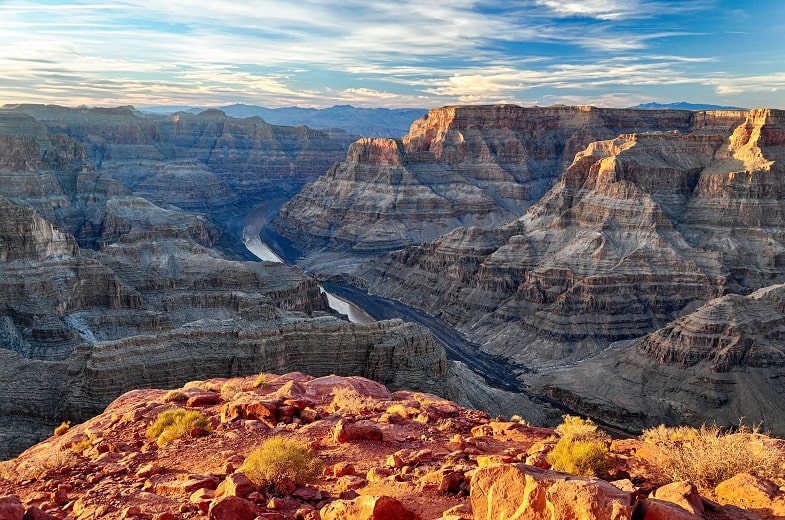

CBD legalization by state:
- Alabama – CBD oil exceeding 0.3% THC legal with medical cannabis license for specific conditions
- Arkansas – Cannabis-derived CBD oil exceeding 0.3% THC legal with medical cannabis license for specific conditions
- Delaware – Cannabis-derived CBD oil legal for both adults and minors under 18 with a medical cannabis license
- Florida – Only hemp-derived CBD cannabis products under 0.3% THC content are considered legal
- Georgia – Cannabis-derived CBD oil legal with medical cannabis license for specific conditions; must contain equal amounts of THC and CBD, and THC content cannot exceed 5%.
- Hawaii – Hemp-derived CBD oil considered legal; cannabis-derived CBD oil regulated for use exclusively by residents with a medical cannabis license
- Idaho – All varieties legal so long as there is no traceable THC content
- Indiana – All varieties legal so long as they do not exceed 0.3% THC
- Iowa – Cannabis-derived CBD oil exceeding 0.3% THC legal with medical cannabis license; list of accepted conditions is fairly restrictive
- Kansas – All varieties legal so long as there is no traceable THC content; medical CBD oil legal with license for specific conditions, provided the THC content doesn’t exceed 5%
- Kentucky – Hemp-derived CBD oil only
- Louisiana – Cannabis-derived CBD oil legal with medical cannabis license, and any product containing more than 0.5 milligrams of THC must be declared for “adult use” on label
- Maryland – Cannabis- and hemp-derived CBD oil now legal, but vendors may require consumers to be at least 21 years old to purchase
- Minnesota – Cannabis-derived CBD oil legal with medical cannabis license for specific conditions; allows the sale of edible products containing CBD so long as they’re accurately labelled and contain less than 0.3% THC
- Mississippi – Cannabis-derived CBD oil legal with medical cannabis license; limited number of accepted conditions; must be obtained from University of Mississippi; cannot exceed 0.5% THC
- Missouri – CBD oil exceeding 0.3% THC legal with medical cannabis license (no qualifying conditions)
- Nebraska – Hemp-derived CBD oil only; cannabis is illegal even for medical purposes
- New Hampshire – Cannabis-derived CBD oil legal with medical cannabis license for specific conditions
- New Mexico – Cannabis-derived CBD oil legal with medical cannabis license for specific conditions
- North Carolina – Cannabis-derived CBD oil legal with medical cannabis license; however, the program is limited to a very small subset of the population of study participants and patients suffering from specific conditions
- North Dakota – Cannabis-derived CBD oil legal with medical cannabis license for specific conditions
- Ohio – CBD must be derived from hemp and shouldn’t exceed 0.3% THC; cannabis-derived CBD oil legal with medical cannabis license for specific conditions
- Oklahoma – Cannabis-derived CBD oil legal with medical cannabis license (no qualifying conditions)
- Pennsylvania – CBD oil exceeding 0.3% THC legal with medical cannabis license for specific conditions
- Rhode Island – CBD oil exceeding 0.3% THC legal with medical cannabis license for specific conditions
- South Carolina – CBD oil exceeding 0.9% THC legal with medical cannabis license; very restrictive list of qualifying conditions
- South Dakota – Legal to sell, buy and carry hemp-sourced CBD oil and other hemp-derived CBD products containing less than 0.3% THC, but cannabis-derived CBD oil remains illegal
- Texas – Low-THC (up to 1%) CBD marijuana oil available for patients with qualifying conditions
- Tennessee – Stricter laws coming into effect in 2024 that make it illegal to sell CBD to anyone under the age of 21; CBD oil exceeding 0.9% THC legal with medical cannabis license, but very restrictive list of qualifying conditions
- Utah – Cannabis-derived CBD oil legal with medical cannabis license for specific conditions
- West Virginia – Cannabis-derived CBD oil legal with medical cannabis license for specific conditions
- Wisconsin – Cannabis-derived CBD oil legal with medical cannabis license for specific conditions
- Wyoming – Legal as long as it contains no more than 0.3% THC
Conclusion
A growing majority of Americans believe that recreational marijuana should be legal. A CBS News/YouGov poll released in April 2022 found that two-thirds of Americans want recreational marijuana use to be legalized under federal law and in their own state. A previous Pew Research Center survey found similar levels of support for marijuana legalization.
Americans have warmed significantly to the idea in recent years. Just 12% of U.S. adults supported legalization in 1969, according to a November 2021 Gallup poll – a figure that rose to 31% in 2000 before accelerating above 50% after 2013 and to a record high of 68% most recently.
Democrats are more likely to support legalization, though a majority of Republicans are now in favour of it, Gallup found. People under the age of 30 are similarly more likely to back marijuana legalization – 81% of those respondents in 2019 – but 62% of Americans aged 50 to 64 also supported legalization, a previous version of the Gallup survey found.
The topic of the full legalization of marijuana and the legalization of CBD, which according to scientific studies does not have psycho-physical effects, remains a debated topic. It would almost seem that in America the regulation of CBD cannabis is constantly evolving, also and especially for the political debate of recent years.
What is certain is that this year, the Farm Bill will be updated, and perhaps the fate of cannabis could change forever, once again.

